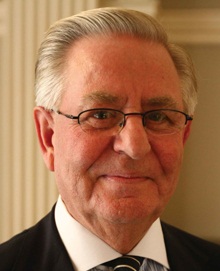
By Philip Whitfield
To be sure, strife seldom strikes separately. Universal healthcare in Egypt heralds a sick society. Damming the Blue Nile threatens small farmers. Lifting Syria’s arms embargo perks up poison-pusher Bashar Al-Assad.
Somebody has to not do what they have openly claimed they would do, says Jonathan Spyer, a respected researcher. Western carpetbaggers are in for a nasty bout of the Cuban heebie-jeebies.
While most of the world welches on promises to cover its aging population’s medical bills, Egypt’s bankrupt cabinet is contemplating just that. Where will the money come from?
It’s fine and dandy to have a revolution, but a reality check is appropriate. Cut your coat according to your cloth. Unexpected consequences are familiar offshoots of revolution’s evolution. Prevention is better than poor cures.
Ethiopia’s dam across the Blue Nile is a catastrophe in the making. It gives new meaning to “trickle-down” economics.
The most alarming fact is the amount of water extracted from the Nile’s regular flow to fill up the dammed – 65 billion cubic metres, a year’s sipping and sloshing.
Ethiopia’s Grand Renaissance Dam will become the largest in Africa – so vast it will create its own ecosystem. Millions of gallons of water will evaporate out of the lake. That’s Egypt’s toilet water.
At 558 feet, the dam will be almost as high as Cairo’s tallest building, the 614-foot Cairo Tower, a tad higher than the 39-storey Ministry of Foreign Affairs (469 feet) and wider than Zamalek.
Scientific opposition to the new dam is significant in Ethiopia and neighbouring Kenya. According to a panel of experts, if Ethiopia presses on, the result will be a cascade of hydrological, ecological and socio-economic impacts. It will be the end of the small farmer.
Dr. William Oweke Ojwang, assistant director of the Kenya Marine and Fisheries Research Institute, says it would be suicidal for Kenya to ignore the impacts of these on the rich ecosystem. David Turton, a forced-migration expert at Oxford University with 40 years’ experience studying the area describes the project as a looming disaster.
Nor is the funding as secure as Ethiopia makes out. If pressed, Ethiopia says it will raise any capital required for the dam itself, showing you how evenly bullshit is spread in Africa. A journalist reporting government workers being coerced to contribute to the dam’s cost got two years’ imprisonment.
China talks about putting nearly USD 2bn into the project, providing turbines. They could be leaned on, as could the US and the EU, Ethiopia’s donors-in-chief. They could also intervene over human rights violations; farmers protesting they’re being carted off from their homes near the dam are led into jail cells.
The Ethiopian People’s Revolutionary Democratic Front got away with an election win in 2010. Observers described an uneven playing field. Suffice to say, they’re gearing up for a tougher fight in a couple of years’ time.
Hence the dam bribes. And faced with 300 or so insurrections over the past 20 years in the Horn of Africa, America’s trying to paper over the cracks with economic aid.
Small projects for farmers that need water to irrigate their crops are being junked. Huge schemes pacify warlords – shades of Afghanistan. That’s why you read that the Renaissance Dam will be built within 44 months. No chance. The money will exsiccate within 44 months just as donations dry up in the mystery of time and the pockets of Egyptian knaves.
This brings us uncomfortably close to home. Can you believe Britain and France didn’t consider the consequences of shafting the Syrian arms embargo?
The Russians took it as the green light to send their deadly S-300 missile systems to Damascus. The magnitude of this is being underplayed; it’s a bigger threat to peace than the Cuban missile crisis.
Some S-300s have nuclear warheads, and lorry-laden TEL and FLAP versions are primed for murder in 15 minutes. Most of Israel, Lebanon and Palestine will be within Assad’s sight. Jerusalem’s fabled walls could be crushed stone chips, the Cardo Maximus crazy paving.
Britain and France generally misread the Middle East and Russian motives through lack of knowledge. Famously, they failed to spot Moscow’s SA-2 air defence umbrella over the Suez Canal that facilitated Egypt in launching the 1973 October War.
The Europeans are just catching up on Russia’s delivery to Assad of three Mach 21 supersonic Yakhont cruise missiles, which can sink warships 300 km off the Syrian coast.
Consider this: At a stroke, Russia has provided the means to prevent Israel knocking out Iran’s nuclear plants. If Israel launches an attack, they can be nuked on land in the air or at sea.
Game, set and match to Iran’s retiring President Mahmoud Ahmadinejad. No wonder Obama’s mum, sending John Kerry to pick up the pieces.
So much for Anglo-French bon sens. After the Iraq debacle, Afghanistan has cost the UK £37 billion. For what? Almost 450 soldiers killed, four times the US rate, more than in Iraq or the Falklands.
Not one Al-Qaeda member has been killed in Helmand province, supposedly the squaddies’ bailiwick. Yet more than 500 non-combatants have gone to early graves.
UK Prime Minister David Cameron frets he’ll lose the next general election. Is there nothing Cameron and his insipid French counterpart François Hollande won’t do to save their skins?
A Thatcher-style war? Save us from peremptory imperialist governments poking their noses into places where they’re not welcome.
In the words of Mahatma Gandhi: What difference does it make to the dead, the orphans and the homeless whether mad destruction is wrought under the name of totalitarianism or the holy name of liberty or democracy?
Philip Whitfield is a Cairo commentator

